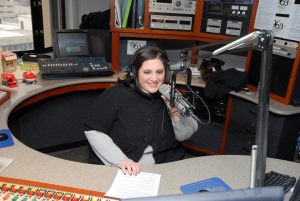The Interview is a Conversation, not a Monologue
I had a 14-minute interview scheduled with a guest on my Show Epiphany which airs Ave Maria Radio. He engaged in one my biggest pet peeves. He shared all his information in the first questions asked.
He was informative but longwinded.
I managed to get in two questions during the entire interview and ended having to cut him off. I despise interrupting a guest in mid-sentence, but we ran out of time.
This is not the first time this has happened with someone I have interviewed. When I sense someone is answering more than the question I asked, I give them a nudge by sharing how much time there is left in the interview.
If the answer to a question takes you five minutes to answer, you have spoken too long. In my media training sessions with clients, I am always coaching them to answer the question and move on. Give the interviewer an opportunity to ask more questions. It’s the host’s show, not yours.
When I am coaching clients on goals and other issues, they can take the entire hour session if they want answering one question. They are driving the conversation. When being interviewed on the radio, TV or for a podcast, those questions need to be concise, informative and to the point. With print reporters, you have more leeway but when you are on broadcast interview, you have a specific amount of time to talk, and the host will cut you off.
You can share a quick and related story to the point you are making but be brief and relevant.
A producer or talk show host is not going to want to bring you back on if you ramble or take up the entire interview segment answering one question. The interview is a conversation, not a monologue.
The best way to avoid this issue is to prepare ahead of time. Anticipate the questions that could be asked. You might consider offering suggested questions or bullet point that could help the host craft question.
Then practice answering the questions. You could even record yourself answering the questions and watch your time. Find out ahead how long the interview will be and prepare for the exact points you want to get across. Part of manage a message is manage the time you take answering a question.
Focus on the Message: An Interview is a conversation, not a monologue.
Here are basic strategies when being interviewed on LIVE TV or Radio.
- Manage the time by knowing how much time you have for a LIVE interview.
- Prepare your points ahead of time.
- If you are truly an expert, you will know the subject well. Share what you know.
- Be specific and to the point.
- Share stories that are brief and relevant.
- Be genuine and authentic by being yourself.
- Always Speak the TRUTH!


